Simplifying Financial Confusion
LEARN CASH FLOW HACKING TO REACH FINANCIAL FREEDOM
Used by 90% of millionaires to reach their financial goals 4x faster
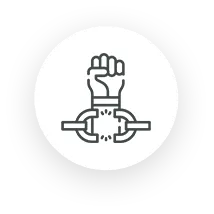
Achieve Financial Freedom Through Cash Flow Hacking
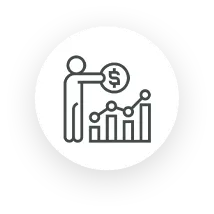
Increase Your Lifestyle While You Build Your Wealth
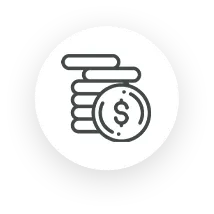
Position Yourself to Thrive in Market Downturn
YOU SHOULD NOT FEEL OUT OF CONTROL ABOUT YOUR FINANCIAL STRATEGY

Have easy access to your money in case of emergencies and opportunities

Use the investment strategy 90% of millionaires use

You deserve a clear plan to consistently grow your money and avoid market uncertainty

Have a guide and advisor that has your best interest in mind

Do not overpay in taxes

Stop guessing at the best vehicles to protect and grow your money

Bank Loan vs. Whole Life Policy Loan | Which is Right for You?
The following article was created as a written adaptation of the video you can find on the Life180 YouTube channel.
¿Should you use a bank or should you use your whole life insurance policy to take out a loan for your next major purchase or investment?
It's a question that many people often ask. If you speak to most practitioners of infinite banking, they will likely emphasize that the purpose of implementing this policy is to assume control over the banking function in your life. In other words, the goal is to manage as much of your money through your policy as possible.
The intended outcome of acquiring this policy is to reduce or eliminate your reliance on traditional banks. I must express that I don't align with this sentiment; I don't subscribe to this philosophy. From a mathematical standpoint, I believe it doesn't hold up.
Intro to should you use a whole life policy loan or bank loan?
In this article, I'm going to walk you through the four-step process I use to determine whether to utilize a bank or leverage the loan provision of my whole life insurance policy. This decision-making process comes into play when making major capital purchases or investments.
This article is bound to elicit feedback, encompassing both positive and negative sentiments from various perspectives. The topic is one that sparks numerous opinions, and for me, it boils down to a combination of mathematical considerations and honed skills.
When it comes to policy loans, it's not simply about the math; it involves understanding your own identity, skills, and capabilities. The readiness to deploy cash holds distinct values for different individuals. Moreover, the concept of control varies in significance for different people in the realm of capital, doesn't it?.
I find it crucial to emphasize that when delving into this topic, one of the aspects I particularly appreciate about whole life insurance is the liquid nature of the cash value within the policy. The ability to have control over this cash value represents a significant advantage. It forms a foundational benefit, in my opinion, making a well-designed whole life insurance policy an ideal choice for both an emergency fund and an opportunity fund in one's life.
That being said, when an opportunity presents itself, whether it's the prospect of purchasing your next car (though I'm not the biggest advocate for utilizing a policy loan in this scenario, despite potential capital efficiency), it's crucial to ensure you've saved enough money in your policy. Whether you choose to leverage your policy or not, we'll explore and determine if it aligns with your goals and if it's the right decision for you.
Whether you're looking at buying a tangible asset like a car or an income-generating asset such as real estate, the key consideration is understanding your capital options and the potential downsides associated with each. Every decision carries a potential downside, and it's important to evaluate both sides of the spectrum.
What Is The Value Of You Having Access To Capital?
So that said, the first thing that I always take into consideration is what is the value for you to have access to capital? Because when we think about it when we're borrowing against our policy we are losing access to that capital and the value of access to capital is different for different people.
Consider this scenario: if you have a cash value of, let's say, $200,000 and you decide to take a policy loan at, for example, 5.5%, borrowing $100,000, your collateral capacity becomes -$100,000. In essence, you now have only $100,000 in remaining collateral capacity, given that $200,000 minus $100,000 equals $100,000. You've effectively lost access to $100,000 out of the initial $200,000.
While there are, of course, benefits, and we'll discuss the cost of the money and related aspects, the essential question remains: you need to determine whether there is value in sacrificing access to capital for the benefit of having more access to capital. This involves considering whether to avoid a policy loan and opt for a potentially more expensive bank loan, even if it were more costly.
Suppose a bank loan carries a 6% interest rate. Would it be sensible to choose a bank loan over a policy loan solely to preserve access to capital? Various factors come into play. The decision hinges on your cash flow and other variables, which we'll explore in more detail.
Ultimately, this is a significant factor to weigh. The foremost consideration should be the value of access to capital. It's crucial to recognize that utilizing a whole life insurance policy loan will diminish your access to capital. This value can vary based on different economic environments and individual circumstances. Nevertheless, it remains the primary factor that you should contemplate first.
What Are The Flexible Terms On The Loan You Are Using?
The second aspect to consider is the flexibility offered by these loans. One notable advantage of a whole life insurance policy loan is its completely flexible repayment terms.
With banks and lines of credit, you usually have, at a minimum, interest-only payments that must be paid every month. Falling behind on these payments can negatively impact your credit, and in some cases, you may not even qualify. In contrast, accessing funds through a whole life insurance policy loan provides a level of access that might otherwise be unavailable.
I'm involved in various projects in the Dominican Republic that traditional banks won't finance. Access to capital opens up opportunities that wouldn't be available otherwise in many situations. When considering the flexible terms of the loan, it depends on the nature of the asset. For instance, individuals looking to flip a home or embark on a short-term investment project may require terms of around six months to acquire a property.
When dealing with banks, managing the interest for the entire six-month term is often required, unless you opt for hard money with special provisions. However, in projects that don't generate cash flow during that period, utilizing a whole life insurance policy loan often makes sense. One key advantage is the absence of a repayment requirement during this time. You can wait until you exit the deal, liquidate the property, and take your profit. Then, you can repay the loan along with the interest, making it a convenient option.
After determining the value of the opportunity and considering the flexibility of the loan, these are the first two aspects I take into consideration.
What Is The Interest Rate Of The Loan? The Cost of Money
The third factor I consider is the cost of money, as I mentioned earlier. Money always comes with a cost, right? It's crucial to understand that when assessing the cost of money with a whole life insurance policy, some people may say they're paying a 5.5% interest rate, but the underlying concept is that you'll be earning concurrently.
Now, the concept of positive arbitrage in whole life isn't as straightforward as it may seem. Let's assume you could earn 4.5% on that policy. In this scenario, you essentially have a negative 1%, representing a 1% cost of money. However, it's essential to note that the actual cost of money isn't precisely 1%, as you're dealing with simple interest that grows on a compounded basis. While I won't delve into the mathematical details in this article, I cover it in other videos and articles, demonstrating why it makes sense to consider this apparent negative 1% arbitrage, which is not truly negative when comparing simple interest to compound interest.
That's a bit of a side note I wanted to emphasize. However, what's crucial to grasp is the concept of the cost of money. In the case of utilizing a non-direct recognition company, your money, the 4.5%, will grow at 4.5% consistently. The variable here is the 5.5%. If you can secure a bank rate of, say, 4%, that's where positive arbitrage comes into play because we're paying the 5.5% through a bank.
Now, we need to reevaluate. The question at hand is: what are the terms of this? How flexible is this money, and can we effectively manage that flexibility? What's important to grasp is that even if the flexibility isn't ideal, utilizing policy loans in months of hardship allows for smaller loans, helping maintain more control over your capital. It requires a bit more effort, but in my view, it often makes the most sense.
Whenever we can secure a cost of money from the bank that's lower than the policy loan provision, in my view, it usually makes sense. This way, you always have access to the capital within the policy to cover the monthly payment and borrow against it in smaller chunks if needed, which just makes practical sense.
How Much Bargaining Power Do You Have?
Now, the fourth question to consider in this process is: What is your bargaining power? Understanding your leverage is crucial when examining the cost of money and making significant financial decisions, whether it's a major capital purchase or an investment in a cash flow property. Recognizing the importance of having access to capital is key in these scenarios.
I had a podcast episode with Garrett Gunderson, where he shared about his podcast studio in his mountain cabin in Utah. During our recording sessions, he highlighted how having access to money through a policy loan allowed him to swiftly close on the property in just nine days. This was in stark contrast to others using bank loans, which would have taken much longer. The urgency to close created an opportunity for him to secure a place he wouldn't have otherwise been able to get. It's a significant advantage.
I'll share my own example involving our camper trailer. It had a Manufacturer's Suggested Retail Price (MSRP) of $29,995, essentially $30,000. They offered a 'good deal' with financing at 4.9%. While this might seem reasonable, considering a policy loan at 5.5%, I had to weigh the options to determine what made sense for me.
The remarkable aspect was that having the money in the policy provided me with the bargaining power and leverage to negotiate the price of the vehicle. Paying in cash allowed me to come from a position of strength, highlighting the advantage of being able to negotiate effectively when paying in cash.
This is a skill set that requires learning and continuous improvement. However, for me, having access to capital and the ability to pay cash for a trailer, without dealing with a financing company, allowed me to negotiate the price down to $19,990 a 33% discount. This strategic purchase enabled us to utilize the trailer for two years, generating significant value.
I even rented it, achieving a 40% cash flow while in use. Due to acquiring it at such a favorable price, I could later liquidate it, flip it, and sell it for more than I initially paid. Did I use the policy loan? Yes. Did I pay a slightly higher interest rate than financing through them? Certainly. However, in the end, I paid a higher interest rate on a lower purchasing price, which, in my view, was a significant advantage.
When you're evaluating whether to use a bank or your whole life insurance policy loan provision, consider these four questions as your guide.
If you have any questions, feel free to leave them in the comment section below. I'm more than happy to engage with each one. If you need further clarification or want to discuss this in more detail, check below for a link to schedule a clarity call with someone from my team. We're here to assist you, provide clarity, and help you understand how this could potentially fit into your life.
That's it for now. Until next time, have a blessed and inspirational day!
HOW TO START TAKING CONTROL OF YOUR FINANCES BY MAXIMIZING YOUR CASH FLOW AND PROTECTING YOUR ASSETS

1. Schedule Your Free Clarity Call

2. Create a Free Customized Plan
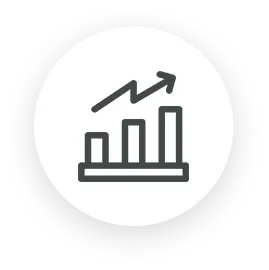
3. Get Guide to Financial Success
GET YOUR FREE COPY TO STOP USING OUTDATED RETIREMENT STRATEGIES
Cash Flow Hacking teaches you to:
Protect Your Investments
Thrive in bad markets
Reach financial freedom faster
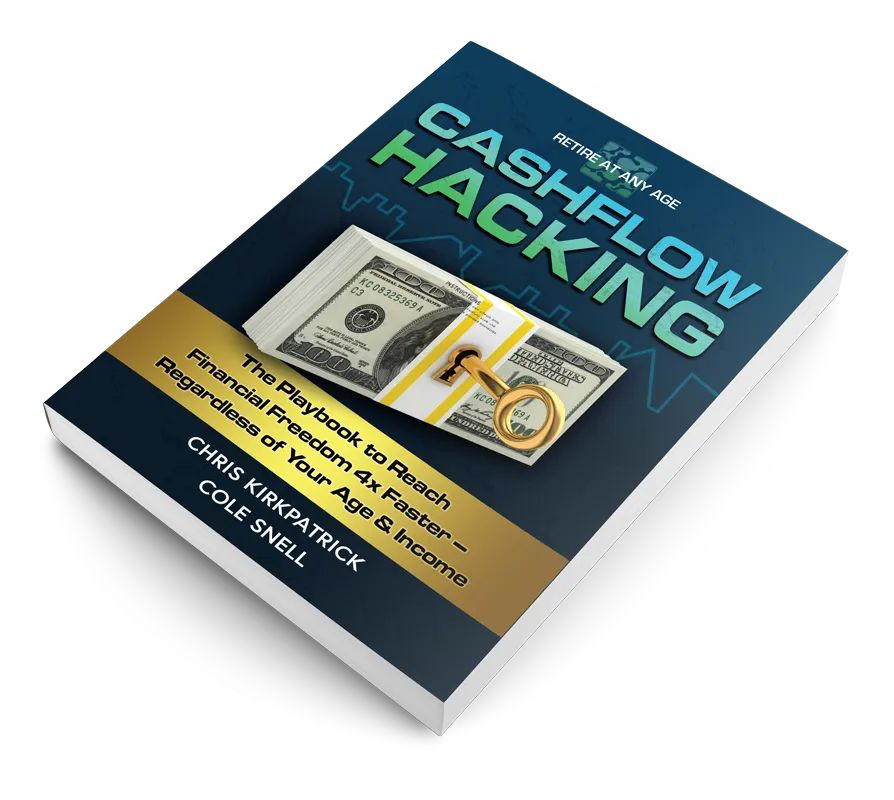
ARE YOU LOOKING FOR:
Cash Flow Hacking teaches you to:
Security to protect your money
Increased cash flow and lifestyle
Inflation protection
Financial certainty in all economic environments
A reduction in taxes
Safe and fast access to your money with no penalties
WHO IS THIS PROGRAM FOR?

People looking for an alternative
Are you looking for alternatives to Wall Street’s “buy and hold” strategy that takes 40 years with uncertain results? Our Cash Flow Hacking strategies provide you the building blocks to get started on the right foot

Passionate Entrepreneurs
Are you looking for a financial strategy that will take your best assets (you and your businesses) and multiply their potential? Our Cash Flow hacking strategies will teach you how to invest for the future without sacrificing building your business

Real Estate
Investors
Are you a real estate investor who is burned out from being a landlord or playing the fix-and-flip game? Our Cash Flow Hacking strategies will provide you with the system to create predictable wealth AND give you the freedom you are looking for.
YOU DESERVE PEACE OF MIND AND A PLAN THAT WILL PROTECT YOUR FAMILY AND GROW YOUR WEALTH
Today you need to be more savvy than ever if you try to go at it alone.
Losing money to inflation, taxes, and just poor investment strategies is leaving you frustrated, feeling out of control and not knowing where to turn. To add to the problem, the market is flooded with advisors who have outdated advice that does not place your best interests first, but instead focuses on charging you a fee that creates guaranteed cash flow for them.
NOT YOU
We believe this is wrong and that your security and best interests should be placed first. We believe you should be in a position where you control your money, your money doesn't control you. We understand because we talk with hardworking people everyday that are losing money in the markets based on old information and feel like they are guessing at the best course of action.
We created the Cash Flow Hacking plan to help you have security and control of your money to take advantage of life's opportunities because you deserve peace of mind with your wealth. The old way of planning for retirement of… Go to school Get a job & save as much as you can in your 401k and mutual funds...is broken.
You have been lied to. Think about it, where else in life does someone tell you that the most certain way to achieve your desired result is to take on more risk? The math just doesn't work, and the results are showing in our country and world. Did you know that 90% of millionaires in the United States have 1 asset in common?
Hint: it's not stocks or mutual funds (and no...it's not crypto) How much sense does it make for you to work hard, save money, reduce your current lifestyle (because that's what you are doing when you save for the future - taking money you could use on lifestyle today and delaying gratification to a future unknown time), and hope that whatever you are doing will work three to four decades from now? If you're thinking, "not much sense at all…", you are in the right place.
With over 50 years of experience on our team, we have worked with thousands of individuals and families to achieve financial freedom faster and with more predictability by helping them invest for Cash Flow.
How does the Cash Flow Hacking Plan work? 1. Take the Cash Flow Hacking Challenge 2. Complete the LIFE180 X-Ray and determine what your Freedom Number is 3. Work with a Cash Flow Hacking expert to provide you a customized plan
The customized Cash Flow Hacking plan will give you clarity on where you are now, where you want to go (and in what time frame), and what you need to do to get there predictably.
We value and commit to you: We believe you deserve the best financial education and guidance We believe financial decisions should not be rushed but be well thought out with a plan We believe you should be in control of your money We believe we earn your trust through time, education, and proper due diligence Without a proper plan and guidance, your money can be lost to taxes, inflation, and bad investments You deserve more with the most up-to-date strategies to mitigate your risk, control your money, and earn stable returns regardless of the market Schedule a call here to attain your LIFE180 Financial X-Ray now or get started with the Cash Flow Hacking Challenge for free.
I am interested in...